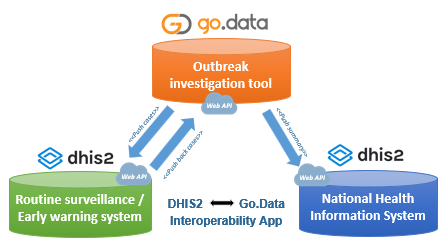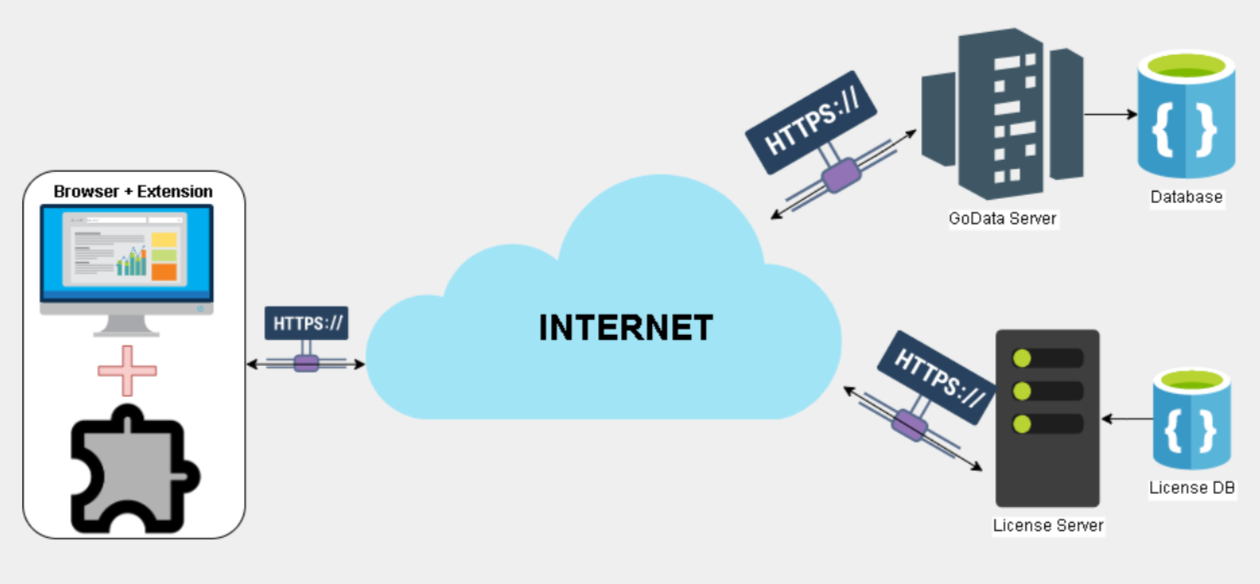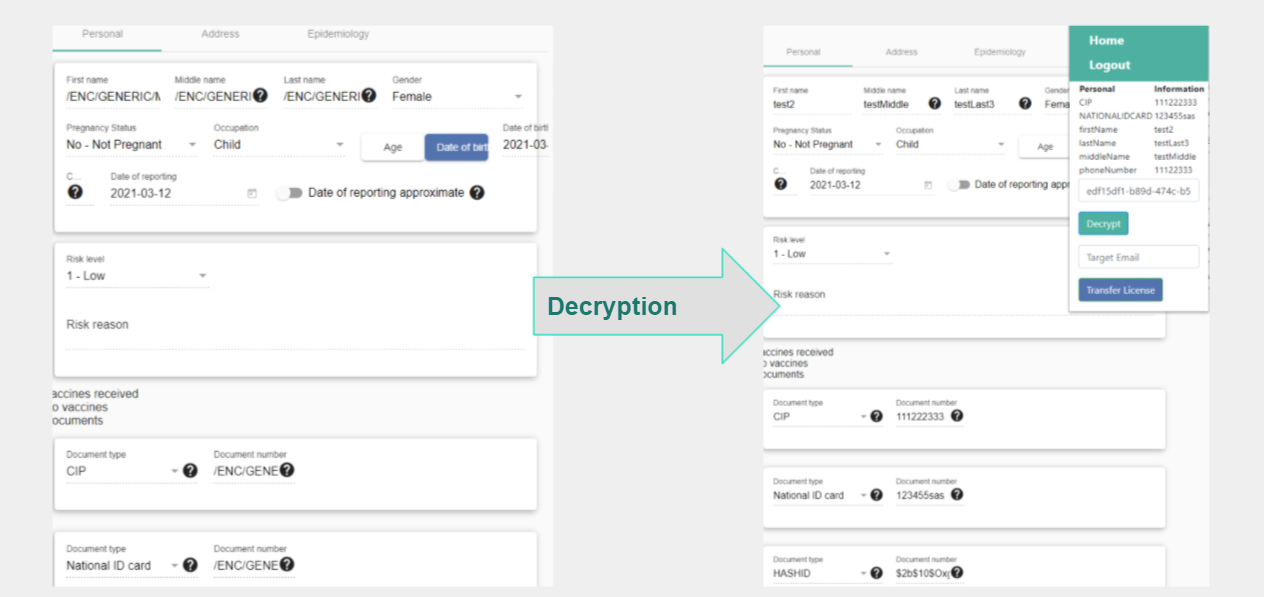Live Integrations and Extensions for Go.Data
There are a number of solutions that have been built by Go.Data users to add on to existing functionality or to link to other systems. You can find the full list of related repositories connected to the Go.Data tool in the overarching WHO Github Repository by filtering for topics = “go-data”, as seen here Below we list some examples of technical solutions that have been built.
To engage directly with this community, visit the “Interoperability” forum in the CoP here
Go.Data-DHIS2 Interoperability App

Collaborators in Spain and Tajikistan have developed a DHIS2 app for exchanging case and contact metadata and data between DHIS2 and Go.Data. The initial configuration maps to the DHIS2 Tracker COVID-19 Standard Metadata Package, enabling countries or institutions who are using DHIS2 for case registration to utilize Go.Data for additional visualization, contact listing and contact tracing follow-up. The second iteration is more flexible in allowing for any variety of metadata configuration in DHIS2, where the front-end user can “map” DHIS2 fields to Go.Data fields as needed, regardless of which Program or Form is utilized.
See more documentation here
For questions / considerations on if this can be piloted in your setting and to provide feedback, please email us at godata@who.int.
Github repository: -dhis2-godata-interop-app
DHIS2 to Go.Data Metadata Sync
Collaborators at EyeSeeTea have developed
- a DHIS2 Application Metadata Sync allowing for flexible export of DHIS2 Metadata
- a script to quickly convert dhis2 Organization Units to Go.Data locations.
See Github directories: -metadata-synchronization -dhis2godata
Go.Data Anonymization Extension

Collaborators at the Polytechnic University of Catalonia (UPC) have developed an extension to enable secure exchange of anonymized case data across institutions, such as hospitals. When a user connects to GoData if he/she has the data anonymization extension installed, it communicate via internet to a separate License Server based on Digital Rights Managemetn (DRM) techniques.

For questions / considerations on if this can be piloted in your setting and to provide feedback, please view this post on the Go.Data Community of Practice.
See Github directory: InSSIDE See Presentation walkthrough here
WHO Polio Geo-Database to Go.Data
Collaborators at EyeSeeTea have developed a script to quickly convert admin levels from the WHO Polio GeoDatabase to Go.Data locations.
See Github directory:PolioDB-GODATA
OpenFn Job Scripts for API Actions
OpenFn has developed a number of automated interoperability solutions to demonstrate common Go.Data interoperability use cases and examples OpenFn job scripts These serve to automate common API and data exchange operations and leverage OpenFn open-source API adaptors including language-godata.
See Github directory: interoperability-jobs
Other Scripts for API Actions
See Github directory: api and Analytics documentation.
This contains example R, Python and C# scripts for GET/PUT/POST commands so that you can manipulate your Go.Data instance through the API, including bulk actions. We have used this for our training instances but think it could be helpful for others too.
Lime Survey to Go.Data
Coming soon
A project developed internally by WHO Information Management and Technology Department to link Data Form (Lime Survey) to Go.Data API for the exchange of COVID-19 tracking data for WHO staff. This is a very specific solution internal to WHO’s need but illustrates integrating the Lime Survey and Go.Data interfaces using .Net 4.7.2 - C# code.